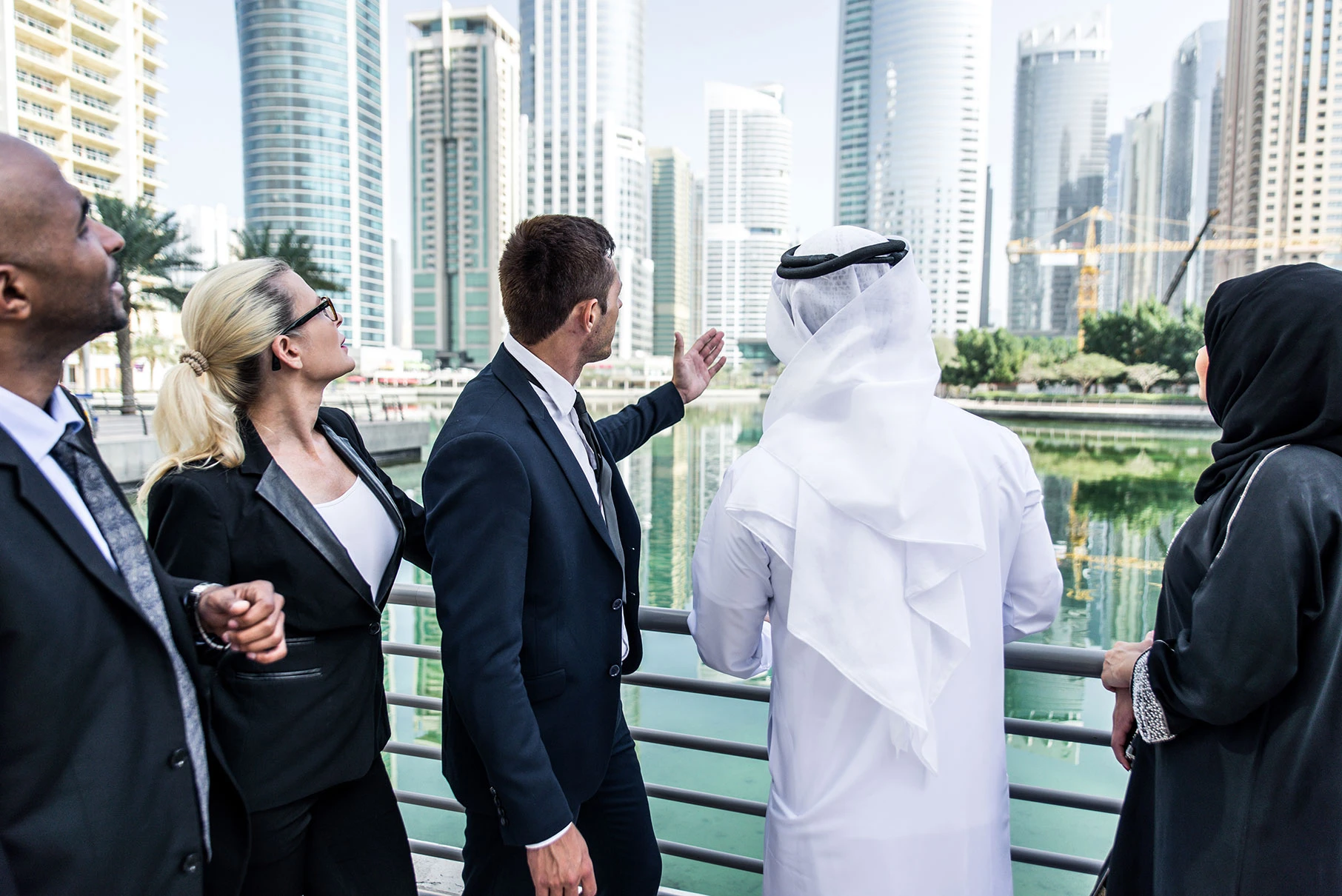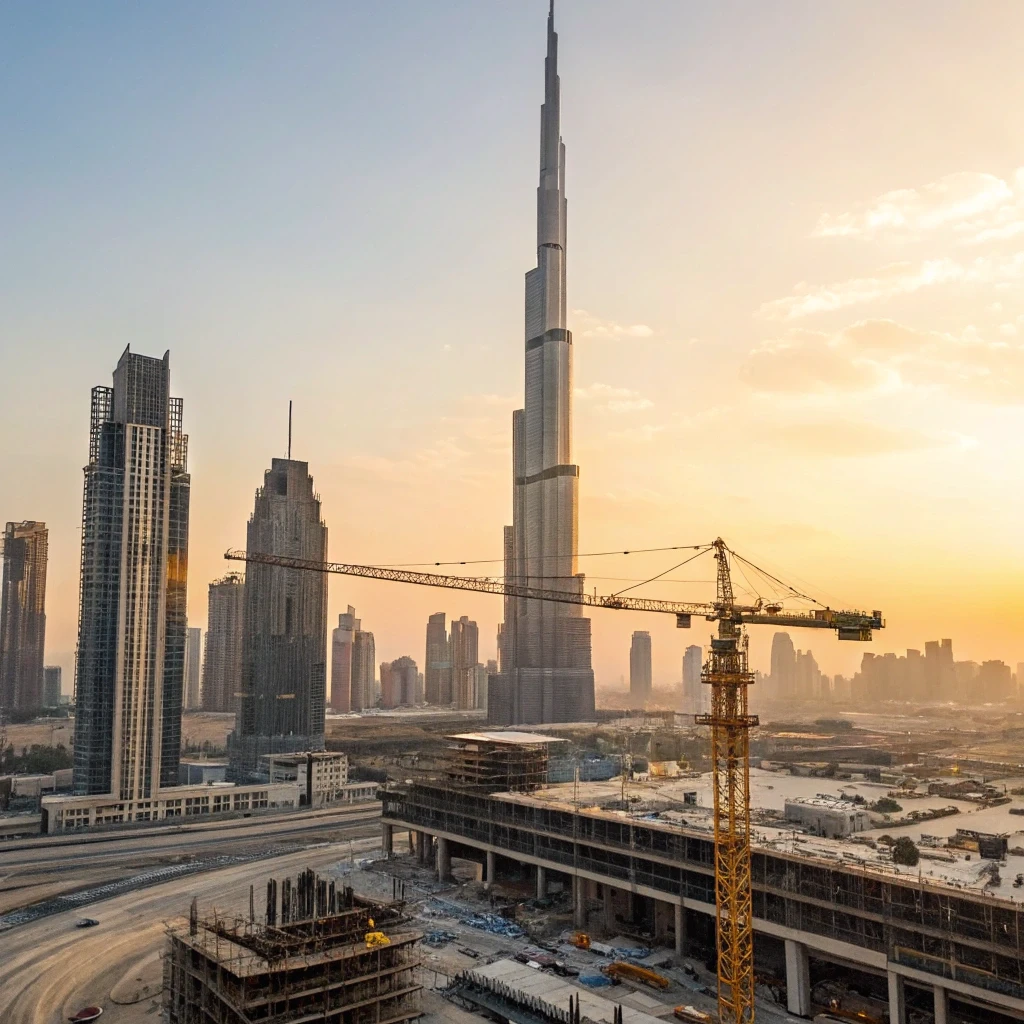Sevenx Properties in Dubai Real Estate Agency
How to Buy Property in Dubai from the USA: A 2025 Investor’s Guide

When James, a 45-year-old tech professional from San Diego, first heard about buying property in Dubai, he had two thoughts. One: it sounds like a high-risk overseas bet. Two: how complicated could it be for an American to invest there?
Fast forward six months—James owns a one-bedroom apartment in Downtown Dubai, earns tax-free rental income, and is working on getting a UAE residency visa. And no, he didn’t have to move his life across the world to make it happen.
If you're like James—curious about international investment, looking to diversify your portfolio, or just wondering how real estate in Dubai works for a US citizen—this guide is for you.
Why Americans Are Turning to Dubai
Dubai isn’t just about luxury skyscrapers and supercars. It’s become one of the most attractive global real estate markets, especially for international investors.
What’s drawing Americans in? For starters, there’s zero income tax on rental earnings, high rental yields (between 5–8% annually), a stable and secure government, and a booming property market that welcomes foreigners.
Unlike many countries, Dubai doesn’t require citizenship, residency, or long approval chains for foreigners to buy property. In designated freehold areas, American investors can own properties 100% in their name, with full rights to sell, rent, or transfer ownership.
Can US Citizens Legally Buy Property in Dubai?
Yes, 100%. American citizens can buy property in any of Dubai’s freehold zones, such as Downtown Dubai, Dubai Marina, Business Bay, JVC, or Palm Jumeirah. These are neighborhoods where foreign ownership is legally protected, and buyers receive a title deed registered with the Dubai Land Department (DLD).
There’s no need for a residency visa to purchase property. All you need is a valid passport and, of course, the funds.
Understanding the Process
The property purchase process is surprisingly simple—especially when compared to the layers of bureaucracy US investors often face back home. It usually starts with defining your investment goals: are you buying for personal use, rental income, or capital growth?
Once you know what you're looking for, you shortlist properties, typically through a broker or developer. After choosing a unit, you’ll sign a Memorandum of Understanding (MoU) and pay a 10% deposit. Then comes the payment (cash or mortgage), final paperwork, and DLD registration—after which the title deed is yours.
If you're buying off-plan (under construction), payments are usually made in stages as the project progresses. If you're buying ready-to-move-in, the process is faster, and you can rent it out almost immediately.
Costs to Expect (and Hidden Fees You Shouldn't Miss)
Let’s be honest—most guides will tell you “just 4% DLD fee,” but that’s far from the whole picture. In reality, you should budget an additional 7–8% over the base property price.
Here’s why:
DLD fee: 4% of the purchase price
Brokerage commission: usually 2%
Trustee & admin fees: approx. AED 8,000
NOC fee (for secondary market): AED 500–5,000
Maintenance/service charges: varies by community
So, if you're buying a property worth $300,000, expect to spend around $21,000–$24,000 on top of that in fees.
And yes, even if you're buying remotely, everything can be handled via digital documentation and a power of attorney—no need to fly in unless you want to.
What About Mortgages?
Here’s good news: You can get a mortgage in Dubai as a non-resident. Banks like Emirates NBD and Mashreq offer financing to Americans, with up to 70–75% loan-to-value in some cases.
The interest rates typically range between 4%–6%, and the process includes standard documentation like proof of income, bank statements, and a good credit report.
Many buyers also choose to pay in cash—especially when investing in off-plan properties, where developers offer flexible payment plans with post-handover options.
Can You Get a Visa Through Property Investment?
Yes—and this is where Dubai sets itself apart. If your property value is AED 750,000 (~$204,000) or higher, you can apply for a 3-year investor visa, renewable as long as you retain the property.
If you buy property worth AED 2 million (~$545,000) or more, you may be eligible for the 10-year Golden Visa—a powerful residency option that also allows you to sponsor your family.
This visa gives you access to:
Emirates ID
Bank account setup
Driver’s license
Healthcare and education for dependents
What About Taxes?
Here’s a simplified breakdown:
In Dubai:
No income tax
No capital gains tax
No property tax (only annual service fees)
In the USA:
You must report foreign rental income to the IRS
You can claim deductions (maintenance, mortgage interest, depreciation)
Capital gains may apply on resale
Consulting a U.S. tax advisor is always a good idea before structuring your purchase.
Managing the Property Remotely
The biggest concern for overseas buyers is: How will I manage this property from 7,000 miles away?
Dubai has a mature, reliable property management sector. For a fee of around 5–8% of the annual rent, agencies can handle:
Tenant screening and leasing
Rent collection and renewals
Maintenance and repairs
Legal documentation and inspection
Make sure to choose a licensed company, and have a clear service-level agreement in place.
Reselling and Exiting
Unlike timeshares or locked-in investments, Dubai property is easy to resell. When you choose to exit:
List your property through an agent
Sign a new MoU with a buyer
Pay standard DLD and broker fees
Transfer title via trustee office
Timing your exit during high-demand periods (Q4 or early Q1) can help maximize profit.
Final Thoughts
Investing in Dubai real estate from the USA may sound like a leap—but with the right information and trusted guidance, it’s surprisingly doable. You're buying into one of the world’s most investor-friendly markets, backed by strong returns, global prestige, and no income tax.
Whether you’re looking for a future home, a rental asset, or a path to residency, Dubai offers a strong case for U.S. investors in 2025.
If you're ready to explore curated properties or want help starting your journey, the team at Seven X Properties is here to walk with you—every step of the way.
Frequently Asked Questions (FAQs)
1. Can a US citizen buy property in Dubai?
Yes, US citizens can legally buy freehold property in Dubai without requiring residency or citizenship. Ownership is 100% legal in designated areas like Dubai Marina, Downtown Dubai, and Palm Jumeirah. The property will be registered in your name with a title deed issued by the Dubai Land Department (DLD).
2. How much does it cost to buy property in Dubai as an American?
In addition to the property price, you should budget around 7–8% extra for fees:
DLD registration (4%)
Agent commission (2%)
Trustee, admin, and NOC fees
For example, a $300,000 apartment will likely cost around $320,000–$325,000 all-in.
3. Can I get a mortgage in Dubai as a non-resident US buyer?
Yes. Dubai banks such as Emirates NBD and Mashreq offer mortgages to non-residents. Typically, you’ll need:
A 25–30% down payment
Proof of income and credit
Valid ID and bank statements
Interest rates usually range from 4%–6%, and mortgage terms go up to 25 years.
4. Am I eligible for a Dubai Golden Visa if I buy property?
Yes. If you invest AED 2 million (~$545,000 USD) or more in Dubai property, you may qualify for the 10-year Golden Visa. This visa offers:
Long-term UAE residency
Sponsorship for family
Full business ownership
Access to healthcare and education
For properties valued between AED 750,000 and AED 2 million, you may still qualify for a 3-year investor visa.
5. Do I need to live in Dubai to own property or get a visa?
No. You don’t need to live in Dubai to buy property or even apply for a visa. The entire process—including title registration and visa application—can be completed remotely via digital documents or a power of attorney.
6. Will I pay taxes in the USA on my Dubai property?
Yes. Although Dubai has no income or capital gains tax, US citizens must declare foreign rental income to the IRS. However, you can deduct expenses like maintenance, mortgage interest, and depreciation. Capital gains may apply if you sell for a profit.
7. How do I manage my Dubai property while living in the US?
Most international investors hire a Dubai-based property management company. These firms handle tenant placement, rent collection, maintenance, and lease renewals. The fee is usually 5–8% of the annual rental income.
8. Can I sell my Dubai property anytime?
Yes, there are no restrictions on resale. You can sell your property through a registered agent at any time. The process includes signing a new MoU, clearing any outstanding fees, and transferring the title through a trustee office. Resale fees are similar to buying fees.
9. Is Dubai real estate a good investment for US citizens in 2025?
Absolutely. Dubai continues to offer high returns (5–8% rental yield), full foreign ownership, zero income tax, and a globally connected market. With the rising interest from international investors, especially from the US and UK, Dubai remains one of the top destinations for offshore property investment.
10. What is the best location in Dubai for American buyers?
Popular areas among US buyers include:
Downtown Dubai – luxury and centrality
Dubai Marina – waterfront lifestyle and high rent demand
Business Bay – commercial and residential mix
Jumeirah Village Circle (JVC) – budget-friendly, family-oriented
Palm Jumeirah – iconic beachfront and exclusive developments
Frequently Asked Questions
A refundable security deposit of 5% of the annual rent will be expected to be paid on Landlords acceptance of Tenants offer to lease. This security deposit which is held by the Landlord and returned at the end of the term dependant on the condition of the property. You will need to pay your rent up front for the period of lease in the way of post-dated cheques depending on the terms of your agreement. Other costs will include 5% of the annual rent payable to the agency for commission plus 5% VAT. You will also need to budget for the deposits required to be paid for connecting your utilities such as water, electricity, televisions etc. 5% VAT is payable on services provided and will be incurred on utility charges.
A refundable security deposit of 5% of the annual rent will be expected to be paid on Landlords acceptance of Tenants offer to lease. This security deposit which is held by the Landlord and returned at the end of the term dependant on the condition of the property. You will need to pay your rent up front for the period of lease in the way of post-dated cheques depending on the terms of your agreement. Other costs will include 5% of the annual rent payable to the agency for commission plus 5% VAT. You will also need to budget for the deposits required to be paid for connecting your utilities such as water, electricity, televisions etc. 5% VAT is payable on services provided and will be incurred on utility charges.
To rent a property in Dubai, you generally need the following documents:
- A valid Emirates ID or passport for identification
- A residency visa
- A tenancy contract is a legal agreement between the tenant and the landlord outlining the terms and conditions of the rental agreement.
- A security deposit, which is typically equivalent to one month's rent
- Cheques or proof of payment for rent and any other fees associated with the rental agreement
- Ejari
In Dubai, the responsibility for paying service fees for a property is determined by the rental agreement between the tenant and the landlord.
In most cases, the landlord is responsible for paying the service fees. However, in some cases, the rental agreement may state that the tenant is responsible for paying a portion or all of the service fees. This would depend on the specific terms of the rental agreement.
The length of the contract can vary, but it is typically for a minimum of one year. However, landlords and tenants can agree to a longer-term contract if they want.






